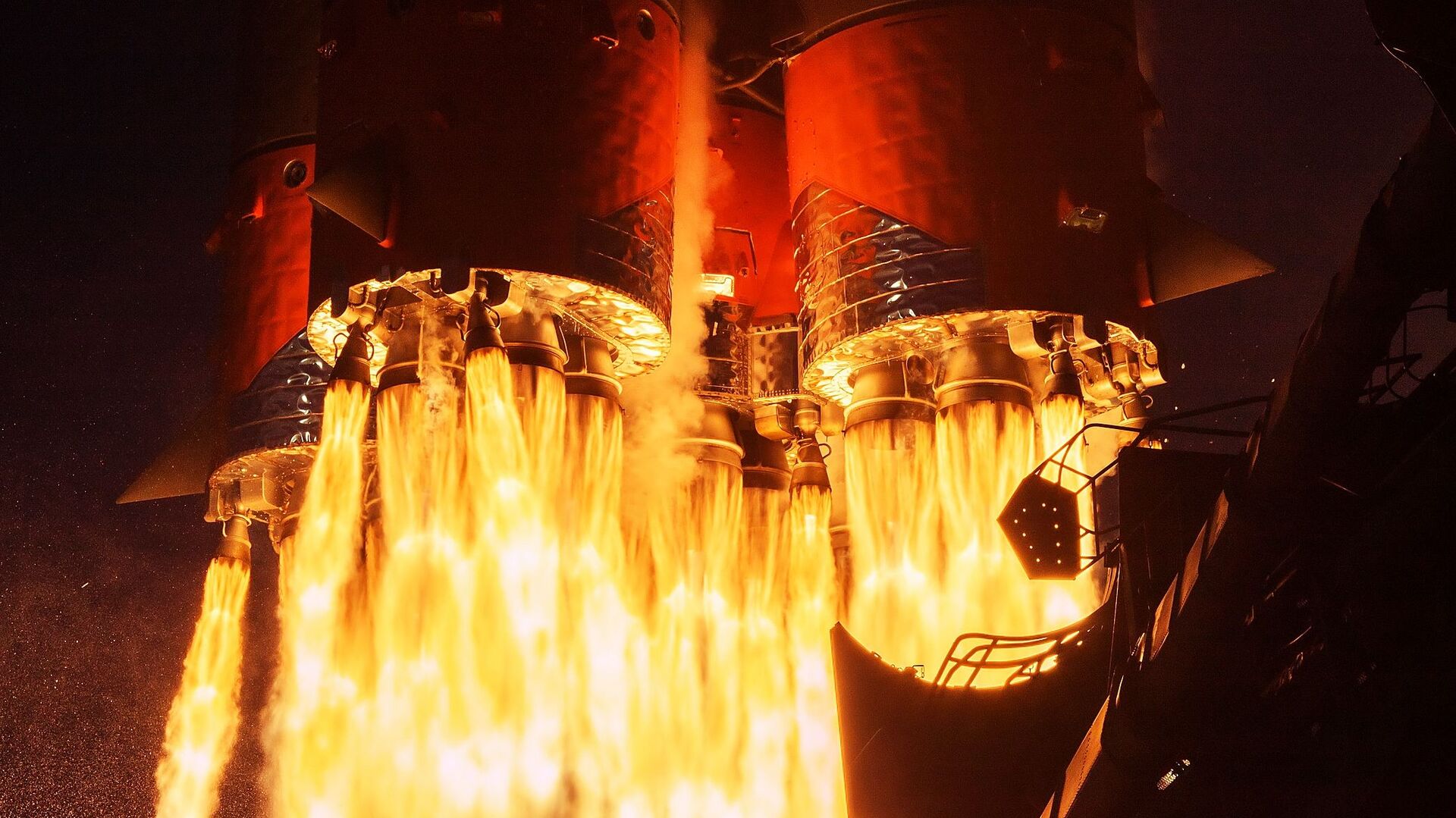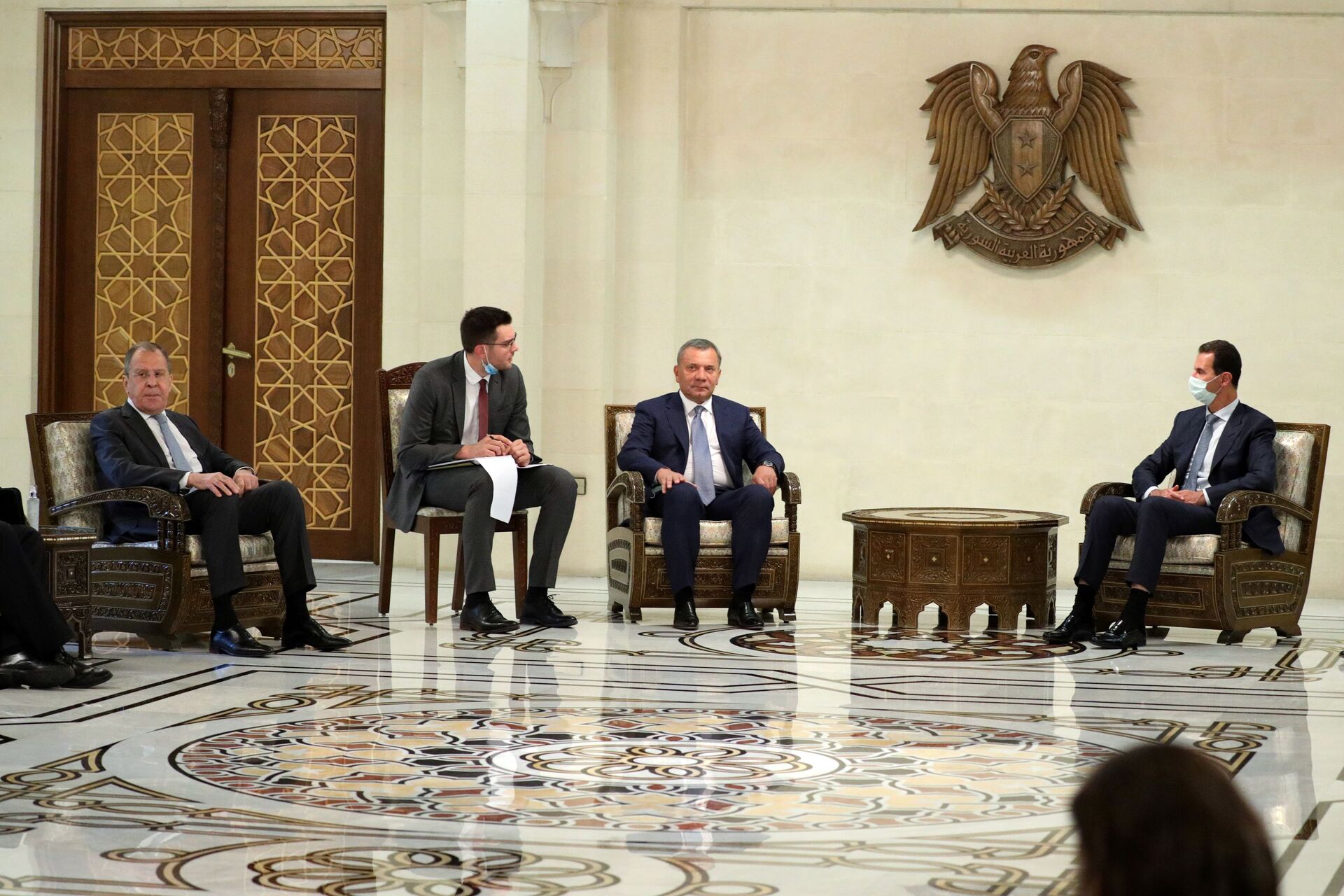Putin Appoints Former Deputy PM Borisov Head of Russian Space Agency
11:54 GMT 15.07.2022 (Updated: 16:58 GMT 12.04.2023)

© Sputnik / FSUE "TsENKI" / Roscosmos
/ Subscribe
Yuri Borisov has served as deputy prime minister in charge of the military-industrial complex since May 2018, and is a career military man as well as doctor of technical sciences.
Russian President Vladimir Putin has appointed former Deputy Prime Minister Yuri Borisov chief of Roscosmos - Russia's space agency, effective immediately.
The appointment, announced Friday on the Kremlin's official website, was followed immediately after Borisov's dismissal from the post of deputy prime minister in charge of military industry. During his tenure, Borisov was responsible for matters ranging from the state defense order to the development of Russia's GLONASS satellite navigation system, military-technical cooperation with foreign nations, civil defense, and the development of the state border.
Borisov is a career military man who graduated from the Kalinin (now Tver) Suvorov Military School in 1974 and the Pushkin Higher Command School of Air Defense Radio Electronics in 1978, and who served as an officer in the Soviet and Russian militaries over the next 20 years and earning a degree from Moscow State University's Faculty of Computational Mathematics and Cybernetics in 1985. After retiring in 1998, he served as director of a state R&D corporation developing avionics, image recognition technology, and integrated circuits.
In 2004, he was appointed head of the radio-electronics industry department at the federal agency for industry, before advancing to the post of deputy head of that agency, and then deputy chairman of the military-industrial commission. In 2012, he was tapped to serve as deputy minister of defense responsible for the creation and modernization of weapons systems for the Russian military, serving in the role until being made deputy prime minister in 2018.

Russia's Deputy Prime Minister Yuri Borisov (C) and Foreign Minister Sergei Lavrov (L) meeting with Syrian President Bashar al-Assad (R) in Damascus on September 7, 2020
© Photo : RUSSIAN FOREIGN MINISTRY
Borisov's predecessor at Roscosmos, Dmitry Rogozin, served as head of the Russian space agency for just over four years, and was appointed to the role in May 2018. The 58-year-old is a career journalist and politician, and has worked in a number of positions in government and as a diplomat since the early 2000s, including as Russia's ambassador to NATO between 2008 and 2011. Rogozin was appointed deputy prime minister in charge of the military-industrial complex in late 2011, serving in the post until May 2018, when he was replaced by Borisov. In April 2016, Putin reprimanded Rogozin in his capacity as deputy prime minister over delays in the construction of the Vostochny Space Port amid reports that large sums of money were being embezzled from the construction site. Multiple contractors working on the project have since been arrested and charged.
Rogozin leaves his post with a mixed record. On the one hand, his tenure set a record in post-Soviet Russia for the number of accident-free launches in a row (86). Rogozin also oversaw preliminary design work for the construction of a new Russian space station - the Russian Orbital Service Station (ROSS), the creation of infrastructure for the Angara rocket at Vostochny, the successful testing of the new Sarmat intercontinental ballistic missile, and the design of the Sfera ("Sphere") satellite constellation. At the same time, limited financing for the agency, ambitious promises about missions to the Moon and Mars, and disputes about excessive focus allegedly being paid on prestige projects – such as a 250,000 square meter National Space Center skyscraper business complex near downtown Moscow, or new paint jobs for decades-old rocket technology, have led to fears among some academics and retired cosmonauts that Russia's space sector has been resting on its laurels and giving up ground from past achievements to competitors like the United States and China.


